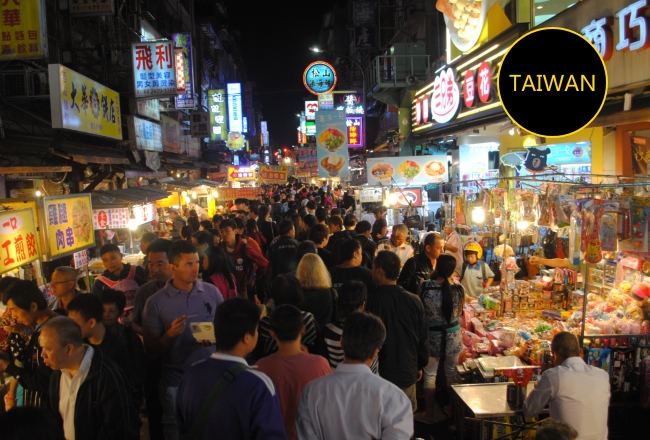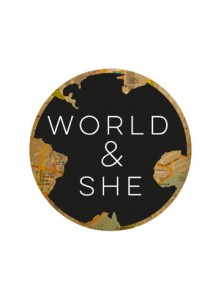The Most Important Phrase to Learn in Chinese (and it’s not ‘Thank You’)

I just bought a cup of coffee and it went something like this:
Barista: “Next, please.”
I step up and he says, “how can I help?”
Me: “Hi. Can I get a regular cappuccino please.”
Barista: “Are you taking out or sitting in?”
Me: “Sitting in, please.”
He turns away to make the coffee. As he turns I say, “thanks.”
Barista: “Chocolate on the top?”
Me: “Yes, please.”
He puts the coffee in front of me. Again, I say “thanks.”
Barista: “Any cakes or pastries?”
Me: “No, thanks.”
Barista: “That’s £2.45, please.”
I hand him the money. He says “Thanks”.
He gives me my change. I say “Thanks.”
I remember I have a loyalty card and say, “can you stamp this, please” and give it to him
Barista: “Thanks.”
I start to walk away.
Barista: “Enjoy!”
Me: “Thank you.”
Barista: “Thanks.”
That’s a total of six ‘pleases’ and a monumental eight ‘thanks’.
Saying please and thank you is such a deeply-ingrained trait of Britishness that for many people it’s reflexive. ‘Thank you’ can latch itself on to the end of your sentences without you knowing you’ve said it and can even pop out of your mouth against your will, say after a bus driver or shop assistant has been rude to you. To say ‘please’ when you ask for something and ‘thank you’ once you’ve received it is one of the first things we teach our children to wrap their delicate vocal cords around and it is the constant use of ‘p’s and ‘q’s that marks a well-raised, polite child from a dragged-up, impolite one.
It can be difficult to maintain your usual good manners when you don’t speak the language of the country you’re in but wherever I am I try to learn a few words in the native tongue – ‘hello’, ‘yes’, ‘no’, ‘please’ and ‘thank you’, numbers from 1-5, ‘water’ and ‘beer’. Never, during the three months I spent in Vietnam did I feel that someone expected me to be able to understand Vietnamese, no one in Cambodia thought it at all likely that I spoke Khmer and in Thailand no one ever tried to converse with me in Thai and yet in Taiwan people regularly tried to speak to me in Chinese. For the first few days this blew my mind, why would anyone think I can understand Chinese?
(I later realised that the majority of Westerners wandering around Taiwan were ex-pats, English teachers for the most part who had lived in Taiwan for a number of years and had picked up a good grasp of Mandarin.)
In Taiwan I found it surprisingly easy to get by on a day to day basis using non-verbal communication – Google translate, common sense and the magic of mime can get you a long way – what bothered me was my inability to be polite, the impossibility of engaging in all the little linguistic niceties that lubricate our daily encounters with strangers.
To make up for the fact that I kept pointing at things instead of asking for them and responding to questions with muteness and a blank expression I learned the phrase xiexie (pronounced she-shay. Ish.), which means ‘thank you’ and used it excessively. I threw it in all over. Thank you, thank you, thank you, every time a waitress brought something to me, every time I bought something in a shop, every time I got on a bus and the response was always the same. Nothing. Complete indifference. What was I doing wrong?
A google search intended to find out if I was saying xiexie all wrong threw up an article from The Atlantic in which writer Deborah Fallows talks about her experience of learning Chinese.
I often feel like I’m being abrupt and blunt, and even rude, when I’m speaking Chinese. Bu yao (don’t want), bu yong (don’t need), mei yǒu (don’t have), bu shi (is not), bu keyǐ (cannot)—all these are standard forms of declining offers or requests, or saying no. But each time I use them, I fight the urge to pad them with a few niceties like “thank you,” “excuse me,” or “I’m sorry.” Blunt is what I hear back from the Chinese as well, but from them it does not seem intended as rude.
She goes on to talk about all the little gestures and acts of politeness that go on at a Chinese dinner table.
At the same time, among good friends, the contrasts between the politesse of what you do and the bluntness of what you say can seem baffling. At a restaurant with friends, a delicate choreography will have one person carefully select a few choice morsels from the common bowl and place them on a neighbor’s plate. It is a small, perfect gesture. Another person will pour tea or beer for everyone else before even considering pouring his own. And then another will announce “Gei wǒ yan!”, literally “Give me salt!”, with no sign of a please or thank you involved. I’m always taken a little aback and bite my tongue to stifle a “Say please!” after so many years of training children in Western table manners.
My Chinese friends say they notice that Westerners use lots of pleases (qǐng) and thank yous (xiexie) when speaking Chinese. And actually, they say, we use way too many of them for Chinese taste. A Chinese linguist, Kaidi Zhan, says that using a please, as in “Please pass the salt,” actually has the opposite effect of politeness here in China. The Chinese way of being polite to each other with words is to shorten the social distance between you. And saying please serves to insert a kind of buffer or space that says, in effect, that we need some formality between us here.
Source: The Difference Between Saying ‘Thank You’ in Chinese and English – The Atlantic
Reading this, everything came into focus. No one in Taiwan wanted to hear me say ‘thank you’ a hundred times, they wanted to know what I wanted so that they could get on with their jobs and, hopefully, their lives. In Chinese being succinct is key and I realised that the best and kindest thing I could do when entering into an exchange with a Taiwanese person was just to lay my cards straight out on the table and, before they had a chance to ask me a question or tell me what has already sold out on the menu or ask me where I’m trying to get to, say ‘wo bu hui shuo zhongwe’, I don’t speak Chinese, and hope they showed me mercy.
If you intend to visit Taiwan, by all means learn some Mandarin Chinese, it can’t hurt and might help you out of a difficult situation but in my experience the most useful phrase to learn is an admission of ignorance and plea for help wrapped into one – I don’t speak Chinese!




4 Responses
I found the same when I was in Taiwan, I was convinced that my preparation had let me down and that I was pronouncing `xiexie` incorrectly! Great read Toni!
Thanks, Santos! It was a very strange experience. Of all the places I’ve been in Asia, Taiwan was definitely the most difficult place to communicate. It made me kind of want to learn Mandarin!
1. You’re confusing Taiwan with China. 2. You’re in another country, why would you expect people to speak English to you?
Hi Kevin,
I’m not confusing Taiwan with China. I’m writing about my experience of communicating with people who speak the Chinese language. I have never been to China and do not mention China in this article.
Nowhere do I say that I expect people to be able to speak English to me, only that I found it surprising/interesting that Chinese-speaking Taiwanese people often spoke to me in Chinese and thought I might understand. As I mention, I think this was due to their being many Western English teachers in some of the places I visited, who could speak basic Chinese. The point I’m trying to get across is the difference between notions of politeness in English and Chinese and how it became clear that people preferred me not to bother with poorly-pronounced niceties and get to the point!